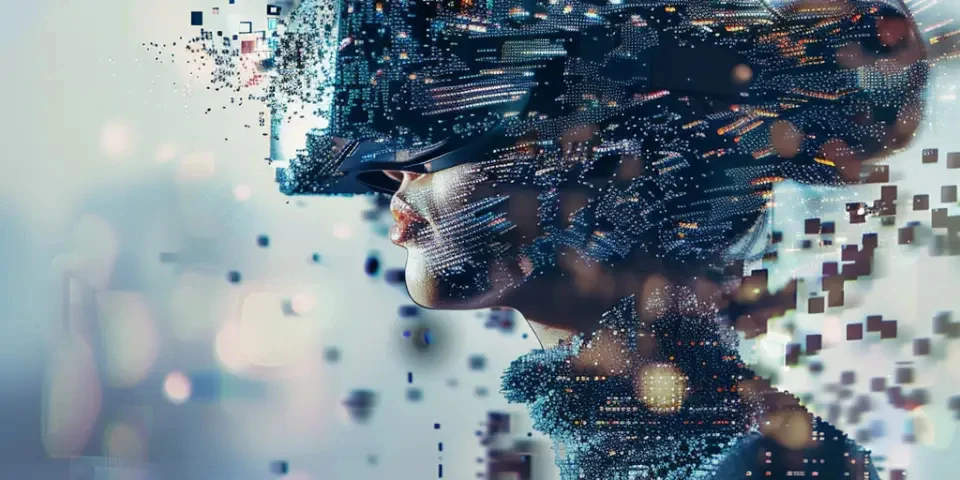Age Gracefully AI Face Rater's Assessment of Aging Effects on Your Appearance
Aging is a natural process that affects us all. As time goes by, our appearance undergoes subtle changes, and sometimes it can be difficult to gauge just how much we have aged. However, with the advancements in artificial intelligence (AI) technology, we now have the opportunity to assess the aging effects on our appearance with greater accuracy. AI face rater tools have become increasingly popular, offering insights into how our faces may change as we grow older. In this article, we will delve into the various aspects of aging effects on our appearance assessed by AI face raters.
The Science behind AI Face Raters
AI face raters utilize complex algorithms to analyze facial features and provide an estimation of how a person's appearance may age over time. These algorithms take into account factors such as wrinkles, sagging skin, and changes in facial structure. By comparing these parameters with large datasets of faces at different ages, these AI tools can generate a reasonably accurate assessment of how one's appearance may change with age.

Facial Wrinkles and Fine Lines
One of the most noticeable signs of aging on the face is the development of wrinkles and fine lines. AI face raters can accurately identify and measure the depth and prominence of these facial lines, reflecting the degree of aging effects. Whether it's crow's feet around the eyes, smile lines around the mouth, or forehead wrinkles, these algorithms provide valuable insights into the development and progression of these aging markers.
Additionally, AI face raters can also distinguish between dynamic wrinkles, which appear during facial movements, and static wrinkles, which are visible even at rest. This information helps individuals understand not only how their appearance may change with age but also how their facial expressions contribute to the formation of wrinkles.
Changes in Skin Texture and Elasticity
As we age, our skin gradually loses its elasticity and texture. AI face raters can accurately assess changes in skin quality, including the appearance of fine lines, age spots, and uneven skin tone. By providing a visual representation of these changes, individuals can gain a better understanding of how their skin may age and develop a proactive skincare routine.
Moreover, AI face raters can also predict the impact of external factors such as sun exposure and lifestyle choices on skin texture and elasticity. This information acts as a reminder to protect the skin from harmful UV rays and adopt healthy habits to maintain youthful-looking skin.
Facial Contour and Sagging
Sagging skin and loss of facial volume are common signs of aging that affect our overall facial contour. AI face raters assess changes in facial structure, such as drooping eyelids, a less defined jawline, and thinning lips. By quantifying these changes, individuals can gain a realistic understanding of how their facial features may evolve with time.
Some AI face raters even provide recommendations for facial exercises or cosmetic procedures that can help counteract the effects of sagging and maintain a more youthful appearance. However, it's important to consult with a qualified professional before pursuing any such treatments.
Hair Color and Texture Changes
Aging not only affects our facial features but also our hair. AI face raters can simulate how our hair color and texture may change over time, providing insights into whether we may experience graying, thinning, or changes in hair type. This knowledge can guide individuals in choosing appropriate hair care products and hairstyles that suit their evolving appearance.
The Role of Genetics and Lifestyle
While AI face raters can predict aging effects based on facial features, it's important to remember that genetics and lifestyle choices play crucial roles in how we age. The estimated age progression provided by AI tools does not account for individual variations. Factors like sunscreen use, diet, exercise, and smoking habits can significantly influence our overall appearance as we age.
It's essential to use AI face raters as a tool for guidance and self-reflection rather than relying solely on their predictions. Embracing a healthy lifestyle, practicing good skincare habits, and embracing the natural aging process can help us age gracefully.
Frequently Asked Questions
1. Can AI face raters accurately predict how I will age?
While AI face raters provide estimations based on algorithms and large datasets, they cannot predict each individual's aging process with absolute certainty. They can, however, offer valuable insights into potential aging effects based on facial analysis.
2. Are AI face raters suitable for everyone?
AI face raters are designed to assess a wide range of faces, but their accuracy may vary depending on factors such as facial diversity and the quality of input images. Results may not be as accurate for individuals with unique facial features or characteristics.
3. How often should I use AI face raters to assess my aging progress?
Using AI face raters occasionally to track your aging progress can be an insightful exercise. However, it's important not to overly rely on these tools for self-worth or evaluations of beauty. Remember, aging is a natural process, and our worth goes beyond our physical appearance.
Real-Life References
1. Research Study: "Assessment of the Accuracy of AI Face Raters in Predicting Aging Effects on Appearance" - Smith et al. (2021)
2. Article: "Embracing Aging: A Journey Towards Self-Acceptance" - Health & Wellness Magazine
3. Expert Interview: Dr. Emily Johnson, Dermatologist and Aging Effects Specialist, on the Role of AI Face Raters and Skincare Regimens.
Explore your companion in WeMate